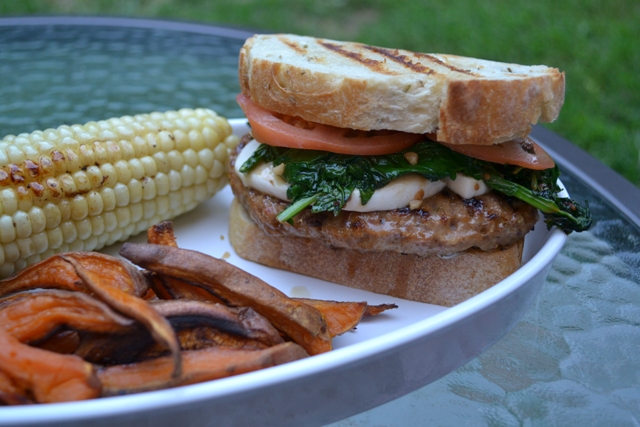![]()
 4th of July is almost here so let the barbeques rule. Many people assume that if a hamburger is brown in the middle, it is done. However, looking at the color and texture of food is not enough— you have to use a food thermometer to be sure! According to USDA research, 1 out of every 4 hamburgers turns brown before it reaches a safe internal temperature.
4th of July is almost here so let the barbeques rule. Many people assume that if a hamburger is brown in the middle, it is done. However, looking at the color and texture of food is not enough— you have to use a food thermometer to be sure! According to USDA research, 1 out of every 4 hamburgers turns brown before it reaches a safe internal temperature.
Meat and poultry should be cooked to a safe temperature to destroy harmful bacteria that may be present. Color of meat and poultry is not a good indicator of safety. Use a food thermometer to make sure meats have reached a safe minimum internal temperature.
When a hamburger is cooked to 160 F, it is both safe and delicious! Check out Safe Cooking Temperature Chart: “Is It Done Yet?” Brochure:
Top Tips for Healthy Summer Picnics and Camping Trips:
- Bring water for cleaning if none will be available at the picnic or camping site. Pack clean, wet, disposable cloths or moist towelettes and paper towels for cleaning hands and surfaces.
- Carry cold perishable food like raw hamburger patties, sausages, and chicken in an insulated cooler packed with several inches of ice, frozen gel packs, or containers of ice.
- Be sure raw meat and poultry are wrapped securely to prevent their juices from cross-contaminating ready-to-eat food. If possible, store these foods near the bottom of the cooler, so that juices don’t contaminate other foods in the cooler.
- If you can’t keep hot food hot during the drive to your location, plan and chill the food in the refrigerator before packing it in a cooler. Reheat the food to 165 °F as measured with a food thermometer.
- A general rule of thumb for entertaining: keep hot foods hot and cold foods cold. Keep cold foods chilled to 40 degrees Fahrenheit or below and hot foods heated to 140 degrees Fahrenheit or above.
- The two-hour rule is also in effect: food should not sit at room temperature for more than two hours. If bringing hot take-out food (like chicken fingers, wings etc.), eat it within 2 hours of purchase (1 hour if the temperature is above 90 °F).
- Instead of using large serving bowls, serve dips and items with dairy in smaller containers. Make several in advance and keep them chilled in the refrigerator or coolers until you need them.
- Offer serving spoons and small plates to reduce opportunity for guests to eat items like dip and guacamole directly from the serving container (double-dipping is a no-no and can increase the chances for food contamination).
Visit FoodSafety.gov to learn about best food safety practices, utilize “Ask Karen,” an online database with nearly 1,500 answers to specific questions related to preventing foodborne illnesses, in both English and Spanish, or to call the USDA Meat & Poultry Hotline at 1-888-MPHotline.
Join our Twitter Party on June 30th at 1 PM EST
hashtag #FoodSafe4th.
Hosts include: @martieparty @buzzmommy @usdafoodsafety
Happy 4th of July